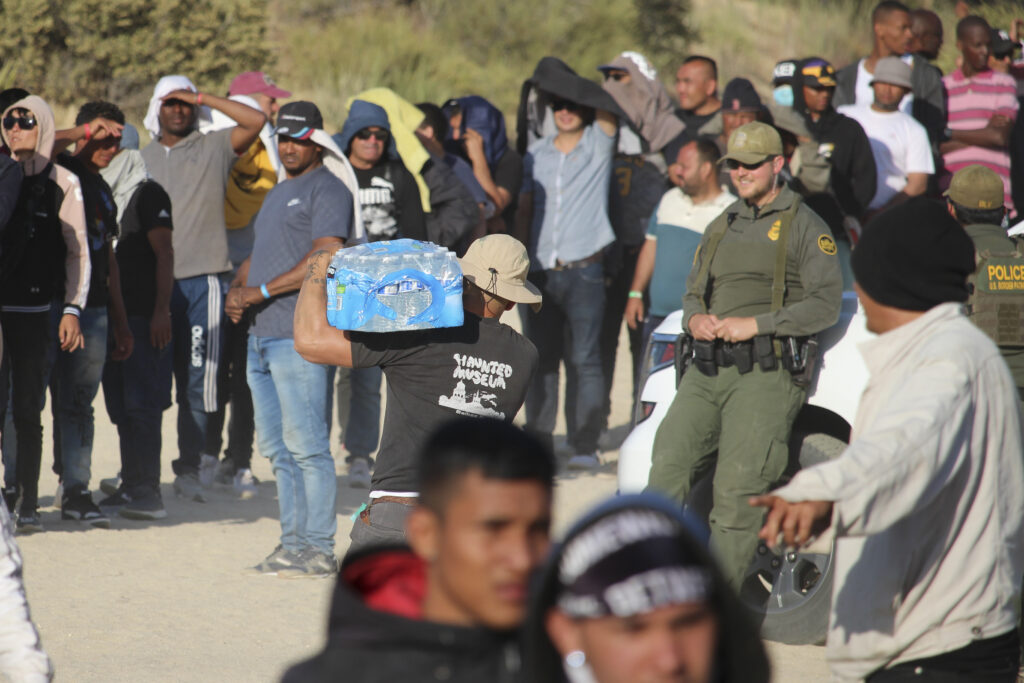
Dry air is a leech. Whatever hydration the harsh sun doesn’t take from you, the air saps. The Sonoran Desert is a place for sun-armored reptiles, for thorned cacti and swirls of dust. And here, more than a thousand migrants made their camp.
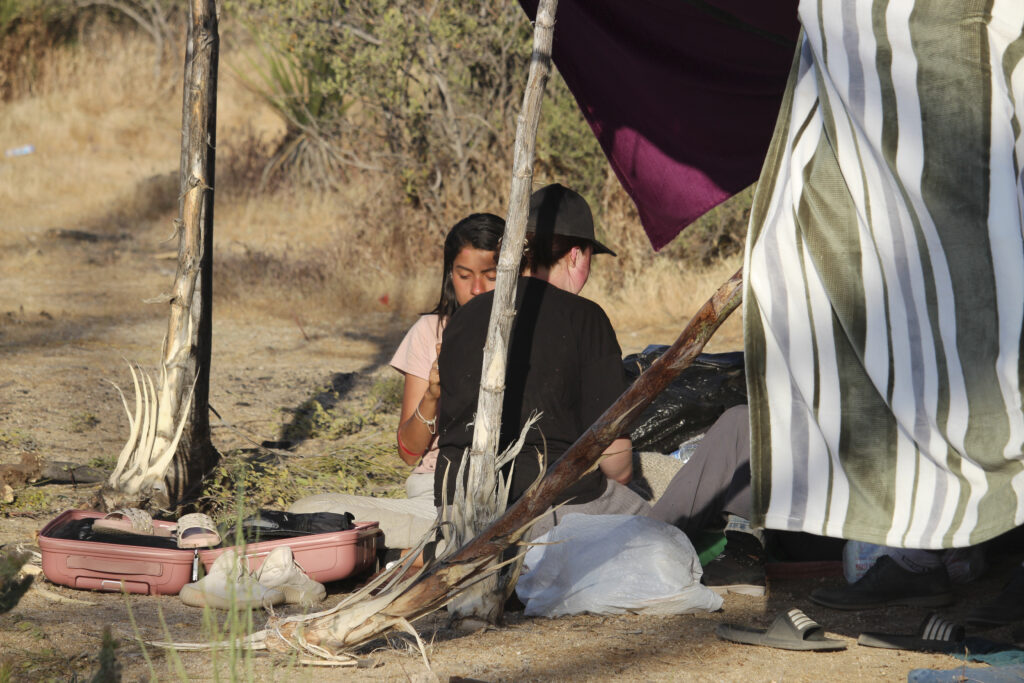
They worked with what they had: stacked sticks to make slatted shade for their babies to nap beneath, lengths of fabric and trash forged into makeshift tents. When the sun dropped behind the mountains in the distance, the weather changed, and it became a struggle to find the warmth, not escape it.
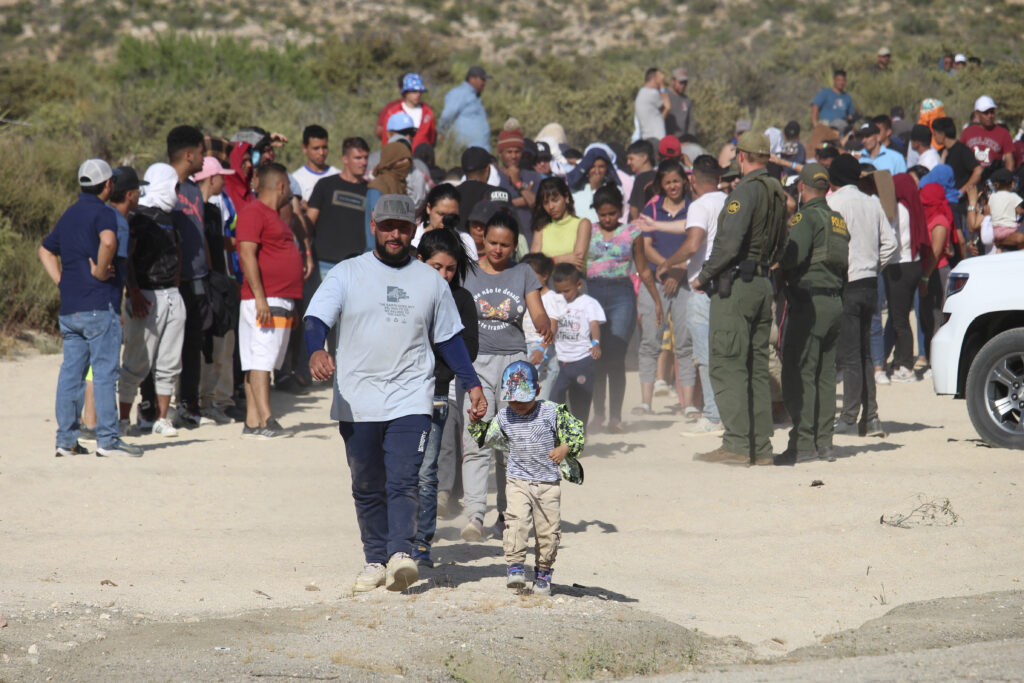
As Title 42 ended last week, roughly 1,200 migrants showed up at the crossing of the U.S.-Mexico border near Jacumba Hot Springs, stuck. The backlog was expected, but where it would happen was hard to predict, as was how long it would last. As people arrived, no resources did.
Until the locals stepped in to help.
“It’s a revolutionary act to care about people these days,” said James Cordero, water drop co-director of Border Kindness, the first of many groups to distribute food and water at the migrant camps 80 miles outside of San Diego. “We care about people, we don’t want them to hurt or suffer, and we just want them to have a chance at life.”
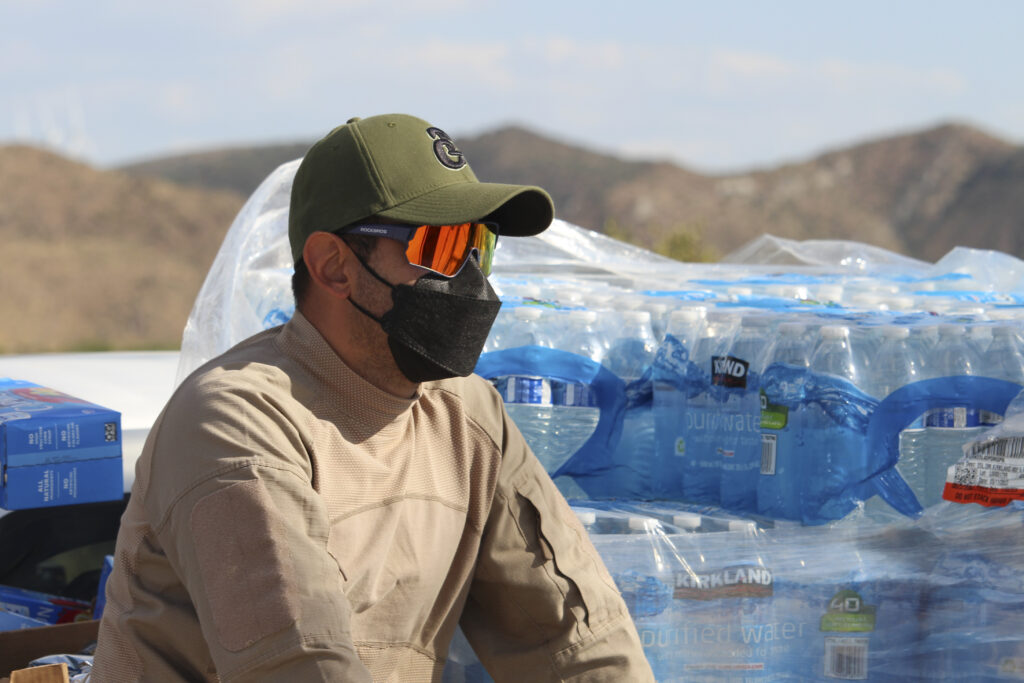
The camps formed on Thursday night, and as word got out, a grassroots frenzy of donations and supply drops arose, fueled by social media and Venmo. There were no deaths, though a few people – a child, a pregnant woman – needed medical attention.
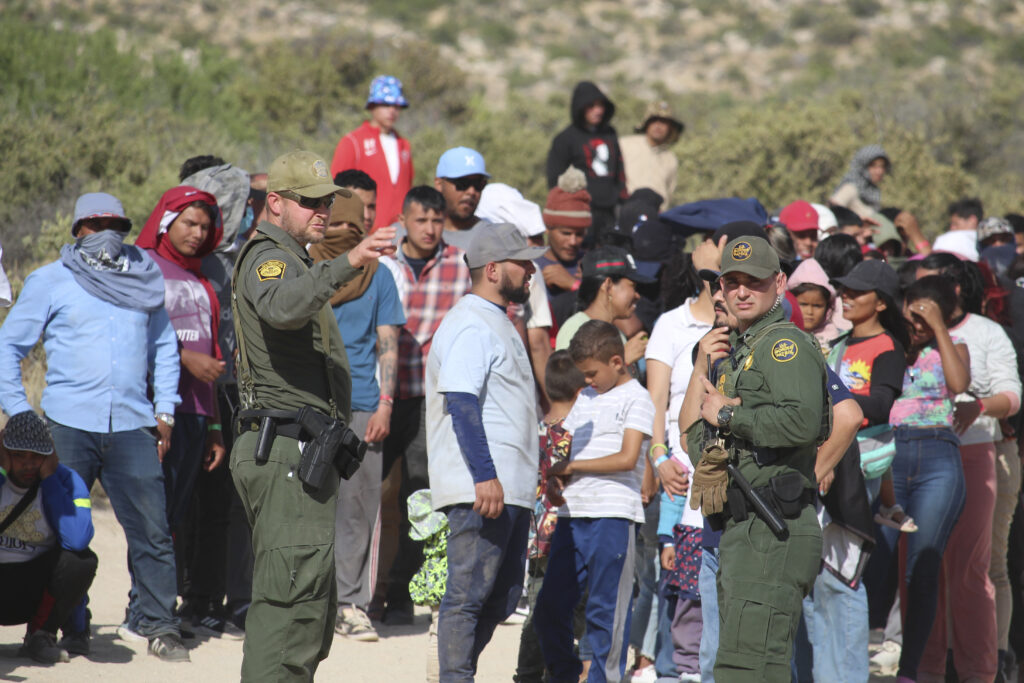
By Monday evening, the migrants were all cleared, taken to be processed at the border – some allowed into the United States, others turned away.
“We showed up in a 4×4 truck filled to the brim, and people started coming out of the hills, more and more of them,” said Ben Jacobs, co-chair of Welcome Home, an organization that supports refugees in San Diego. “Women were in tears, begging for food for their children.”
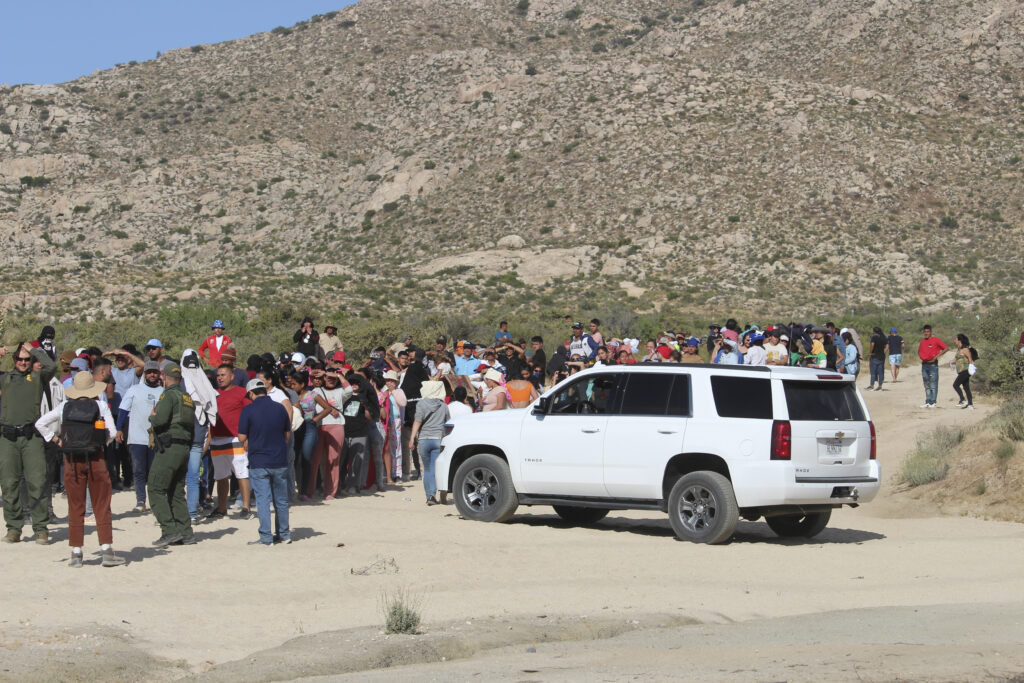
After the chaos of the first day, things became more organized. The owners of the Jacumba Hot Springs Hotel centralized donation efforts, accepting donations at its adjacent gas station, where volunteers of all ages sorted goods into bags to hand out to people at the camps.
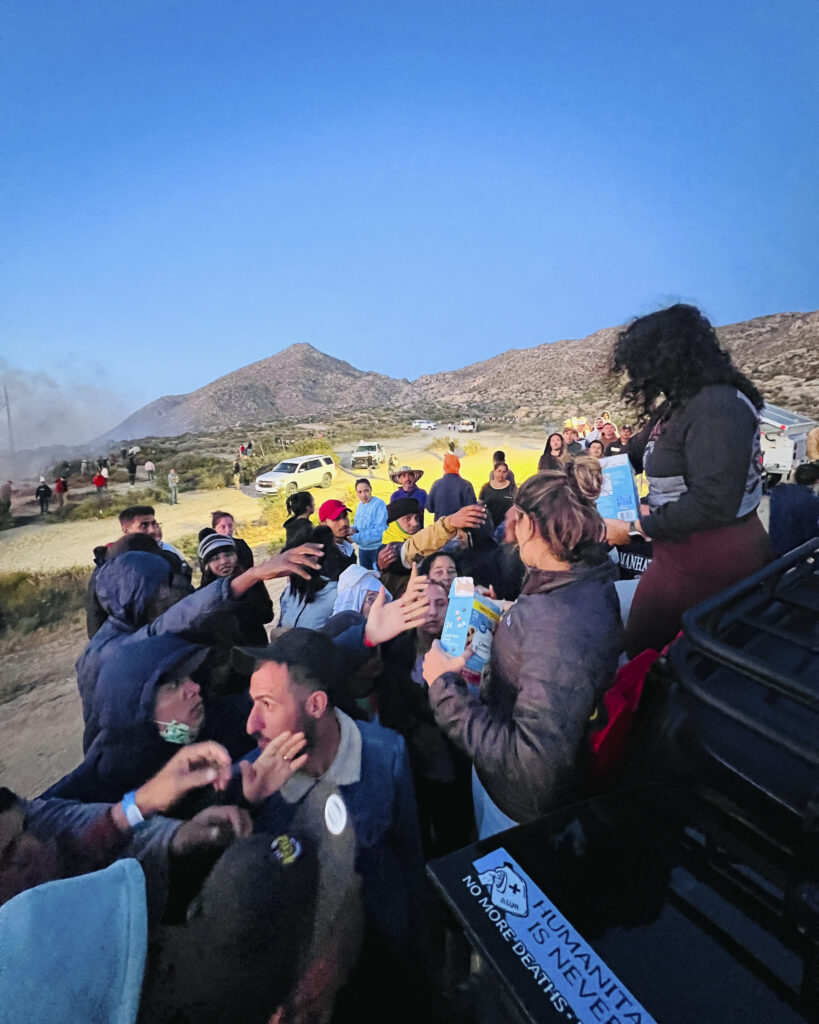
Eventually, Melissa Strukel, designer and founding partner of Jacumba Hot Springs Hotel, announced they had more than enough clothing. Then, enough food. Finally, she asked people to donate anything remaining to local shelters. The community had stepped up – and then some.
“Your hats are keeping children from burning in the sun,” Strukel said in an Instagram update. “Your water is keeping people alive. Your formula is feeding babies. Your food is keeping people from feeling despair. Your tarps are keeping families from heat exhaustion. Your love and support is keeping all of this going and my tears are endlessly falling.”
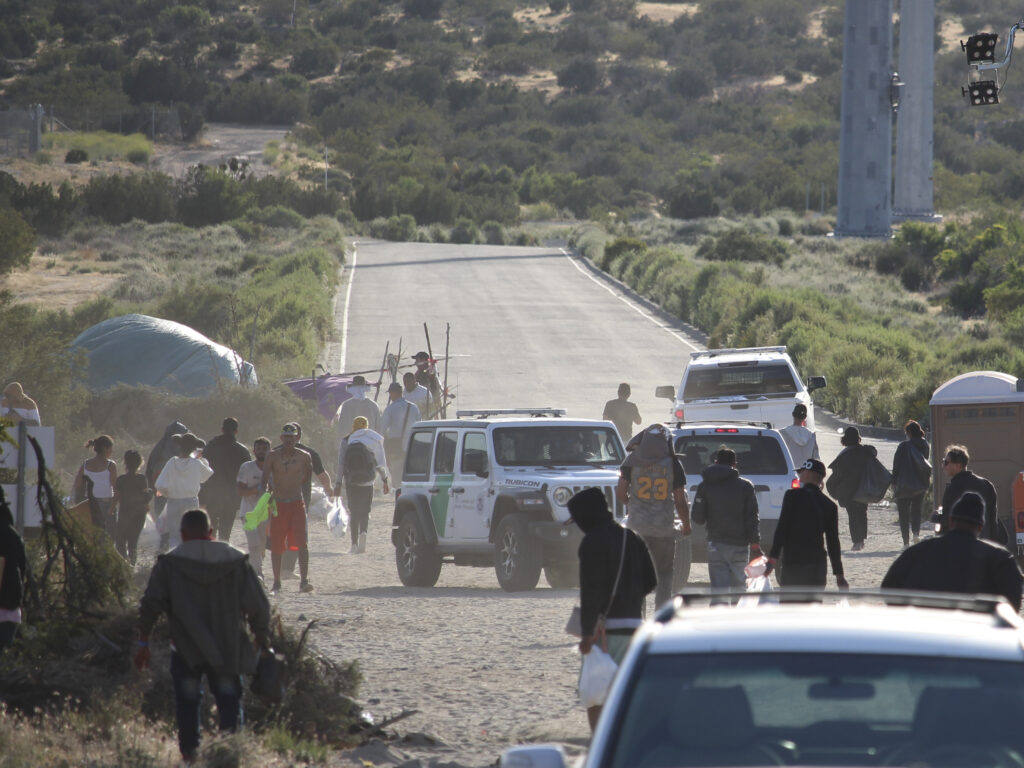
The camps formed after the expiration of Title 42, a covid-era immigration policy passed under the Trump administration that prevented asylum seekers from entering the United States. Now, immigrants are processed under Title 8, which was in place before the pandemic.
Ahead of the policy’s expiration, the U.S. Department of Homeland Security warned that the change did not mean the border was open, and that anyone who arrived at the border without an appointment would be turned away or even face criminal charges.
“Smugglers are seeking to take advantage of this change and already are hard at work spreading disinformation that the border will be open,” said Alejandro N. Mayorkas, secretary of homeland security deputy, in a statement.
“The smugglers’ propaganda is false,” Mayorkas said. “Let me be clear: Our border is not open and will not be open after May 11.”
Political ideology is one thing, volunteers said. Starving people near your own home is another.
“We weren’t sure if anybody was going to stand up and do anything,” Cordero said. “Immigration is controversial, especially in east county. But when it all comes down to it, that’s another human being out there, and people didn’t allow ideology to influence the way they feel about another person.”
The migrant camp sat mere miles from the desert town of Jacumba Hot Springs. Now that it’s cleared, the owners of the Jacumba Hot Springs Hotel are rallying volunteers to clean up the campsites. Cordero is alert for any more influxes of people, and in the meantime, is back to leaving drops of water and supplies in the desert hills along known migratory routes.
The work isn’t over for Jacobs either, as he continues to assist refugees in the United States, particularly those who provided intelligence to the U.S. before the country withdrew from Afghanistan.
And Strukel said in update that everyone who pitched in is now family.
“If your political beliefs keep you from giving water to a crying two-year-old in your backyard,” she said, “I’d like to meet you.”




